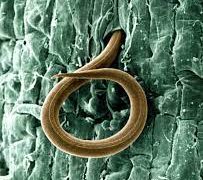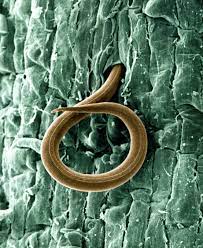Root-knot nematodes, caused by the Meloidogyne spp., are parasitic pests that attack plant roots and cause significant damage to crops, leading to huge losses for farmers. This article provides the latest data on the topic, including methods to control and prevent the damage caused by these silent killers of crops.
According to the University of Florida’s Institute of Food and Agricultural Sciences (UF/IFAS), root-knot nematodes are one of the most damaging pests that affect crops worldwide, with an estimated 12.5% of global crop production lost due to their infestation. These microscopic worms penetrate the roots of plants and form galls, which restrict the plant’s ability to absorb nutrients and water, leading to stunted growth, wilting, and yield reduction.
The development of root-knot nematodes can be influenced by several factors, such as soil type, temperature, and moisture levels. Therefore, controlling their population is a multi-step process that involves the use of various strategies, such as crop rotation, cover crops, and the use of nematode-resistant cultivars. Furthermore, the use of nematicides, such as oxamyl and metam sodium, can be effective in controlling root-knot nematodes. However, their use should be done with caution as they can have negative effects on the environment and non-target organisms.
In conclusion, root-knot nematodes are a significant threat to global crop production, and their control and prevention require a multi-disciplinary approach. Farmers and agricultural professionals should implement various control strategies and best management practices to mitigate the damage caused by these silent killers of crops.
#MeloidogyneSpp #RootKnotNematodes #CropProtection #Nematicides #Agriculture #Farmers #Agronomists #AgriculturalEngineers #FarmOwners #Scientists































